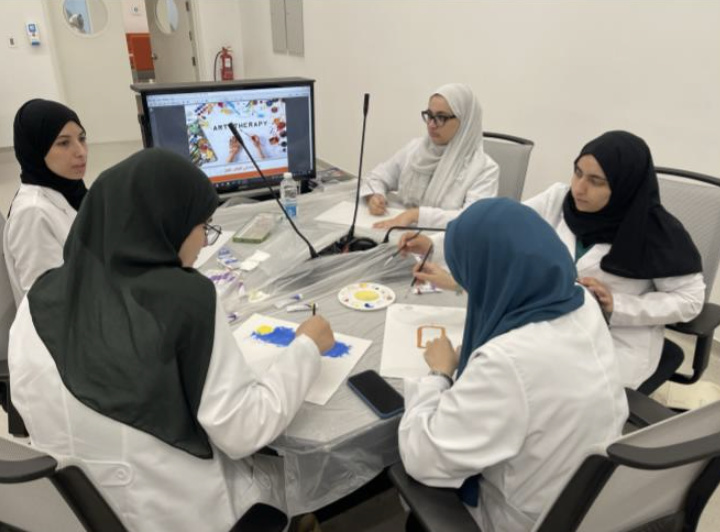Before you continue
By clicking “Accept All”, you agree to the storing of cookies on your device to enhance site navigation, analyze site usage, and assist in our marketing efforts.

In an effort to encourage mental wellness via artistic expression, Fakeeh College for Medical Sciences organized its Second Art Therapy Workshop on November 27, 2024, in partnership with the Community Service Activity Unit. The seminar, which took place in Building 3's TBL room on the second floor, explored the expanding use of art therapy in Saudi Arabia and the Middle East. Students used their artwork to reflect on feelings and coping mechanisms during group discussions and guided drawing exercises. The session, which was attended by 12 staff members and 29 students, was well appreciated and demonstrated the therapeutic benefits of art in healthcare education.
Students from MBBS, PharmD, Nursing, and MLS programs
Explore the development and recognition of art therapy in the Kingdom and the Middle East.
• Present case examples of how art therapy supports mental and emotional healing.
• Encourage students to express emotions and experiences through art.
• Use student artwork as a tool for open discussion and emotional reflection.
• Promote art as a culturally sensitive tool in therapeutic settings.